
Looking for the Work Order Form?
The COR²E work order request form has a new location.
Thermal Analysis

Dennis Ndaya, Ph.D.
- dennis.ndaya@uconn.edu
- 860.486.4075
Location
Campus Address
Mailing Address
25 King Hill Road, Unit 3136
Storrs, CT 06269-3136
Instrumentation
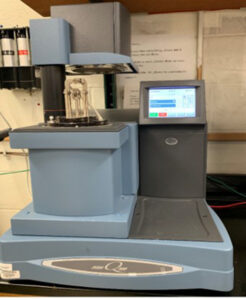
TA Instruments DMA Q800
A Dynamic Mechanical Analyzer (DMA) measures the mechanical/rheological properties of a material as a function of time, frequency, temperature, stress and strain. DMA works on the principle of applying a force or a deformation to a sample, then sample’s response, which will be a deformation, or a force is measured.
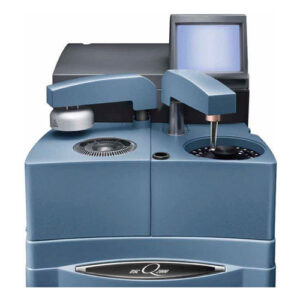
TA Instruments DSC Q20
The Q-20 and the Q-100 are connected to RCS coolers and have a temperature range of -90°C to 400°C.The Q-100 has Modulated DSC capability. MDSC increases the amount of information that can be obtained from a single experiment. In addition to transition temperatures, melting and crystallization and heat capacity, modulated DSC provides an improved resolution of transitions that overlap or occur only a few degrees apart, an increased sensitivity to weak transitions, and separation of reversing and non-reversing phenomena.
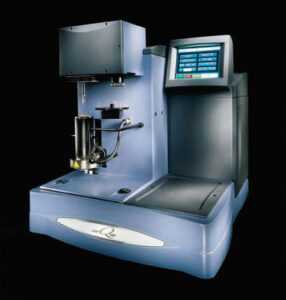
TA Instruments TGA Q500-0188
- The TA Instruments Q500 TGA offers a high temperature limit for your thermal analysis needs. The instrument measures the mass loss of a sample very accurately versus temperature.
- The temperature can go from room temperature up to 1000 °C with a max ramp rate of 50°C/min.
- Samples can be tested in an inert nitrogen environment or in air.
- The automated sampler can accommodate 16 samples that will run in succession
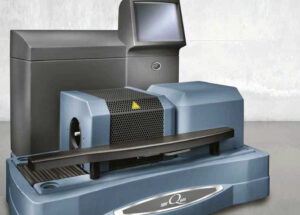
TA Instruments SDT Q600
- Simultaneous DSC-TGA measures both heat flow and weight changes in a material as a function of temperature or time in a controlled atmosphere.
- Simultaneous measurement of these two material properties not only improves productivity but also simplifies interpretation of the results.
- The complimentary information (DSC & TGA obtained allows differentiation between endothermic and exothermic events which have no associated weight loss (e.g., melting and crystallization) and those which involve a weight loss (e.g., degradation).
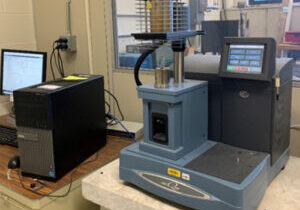
TA Instruments TMA Q400
- TMA measures the dimensional changes of a sample as a function of temperature or time while it is subjected to defined mechanical stress or load under conditions of controlled force and atmosphere.
- The modes of measurements includes Compression, Expansion, Penetration, Tension and 3-Point Bending
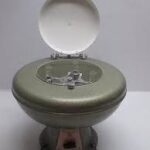
Bench Top IEC Model CL Clinical Centrifuge
Six 15 ml buckets. Variable speed control with a maximum speed of 7100 rpm.